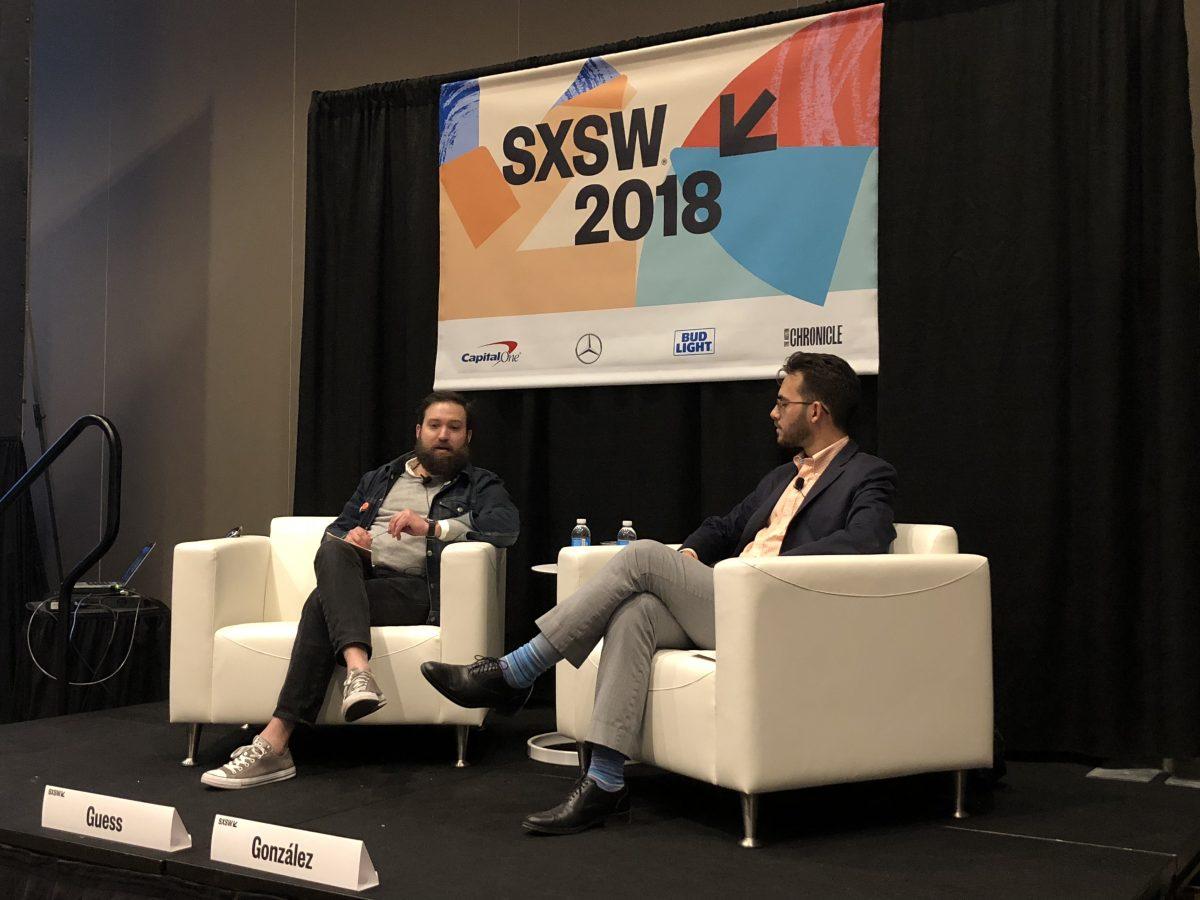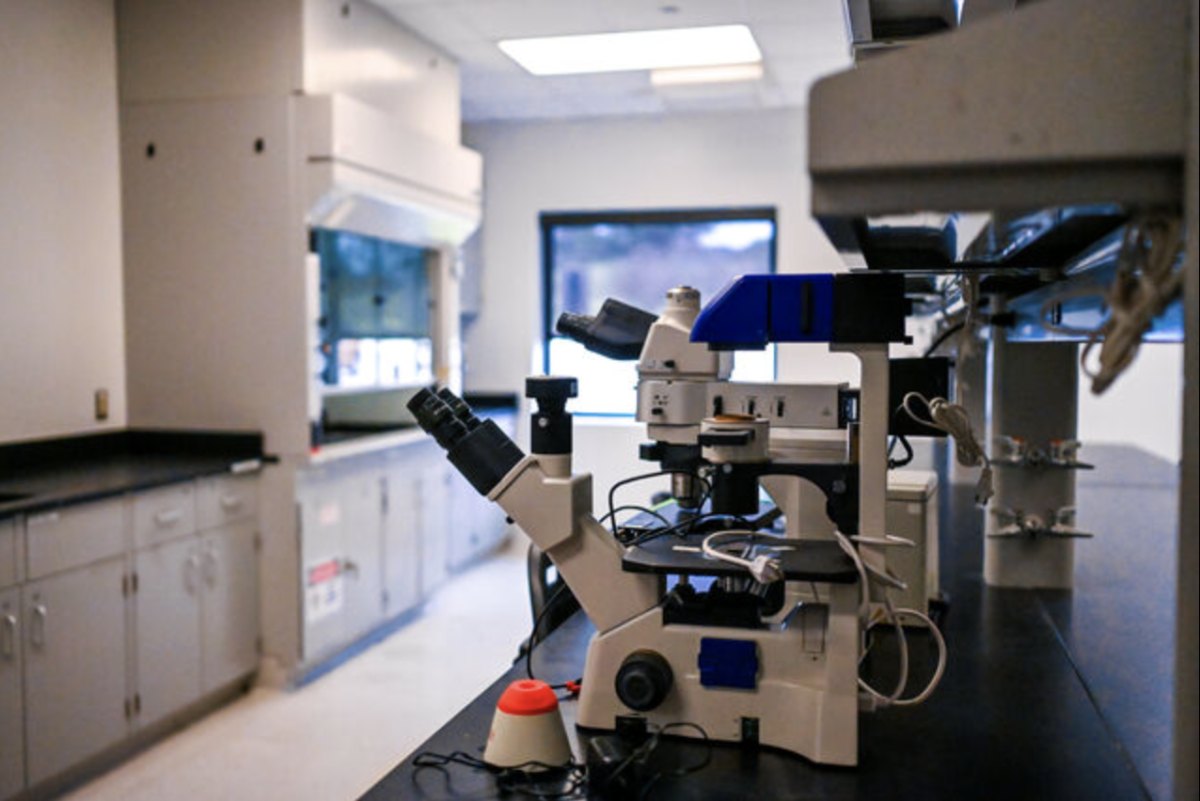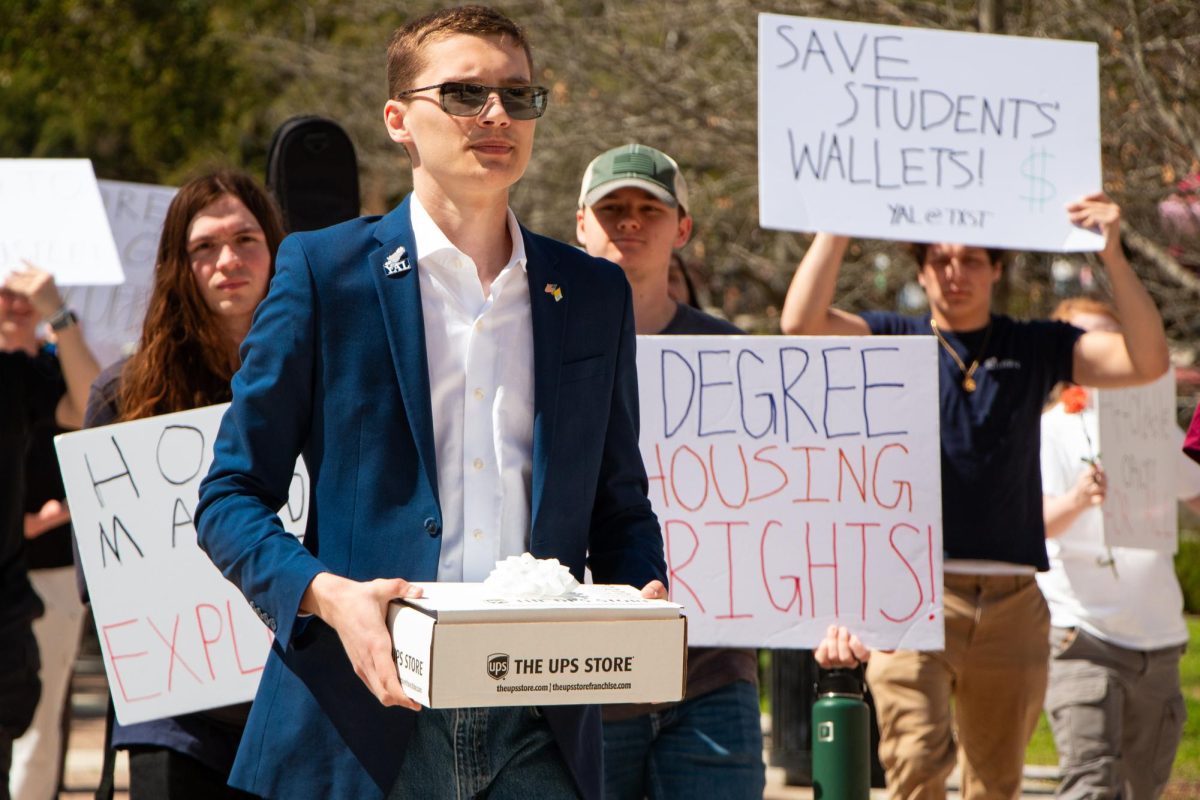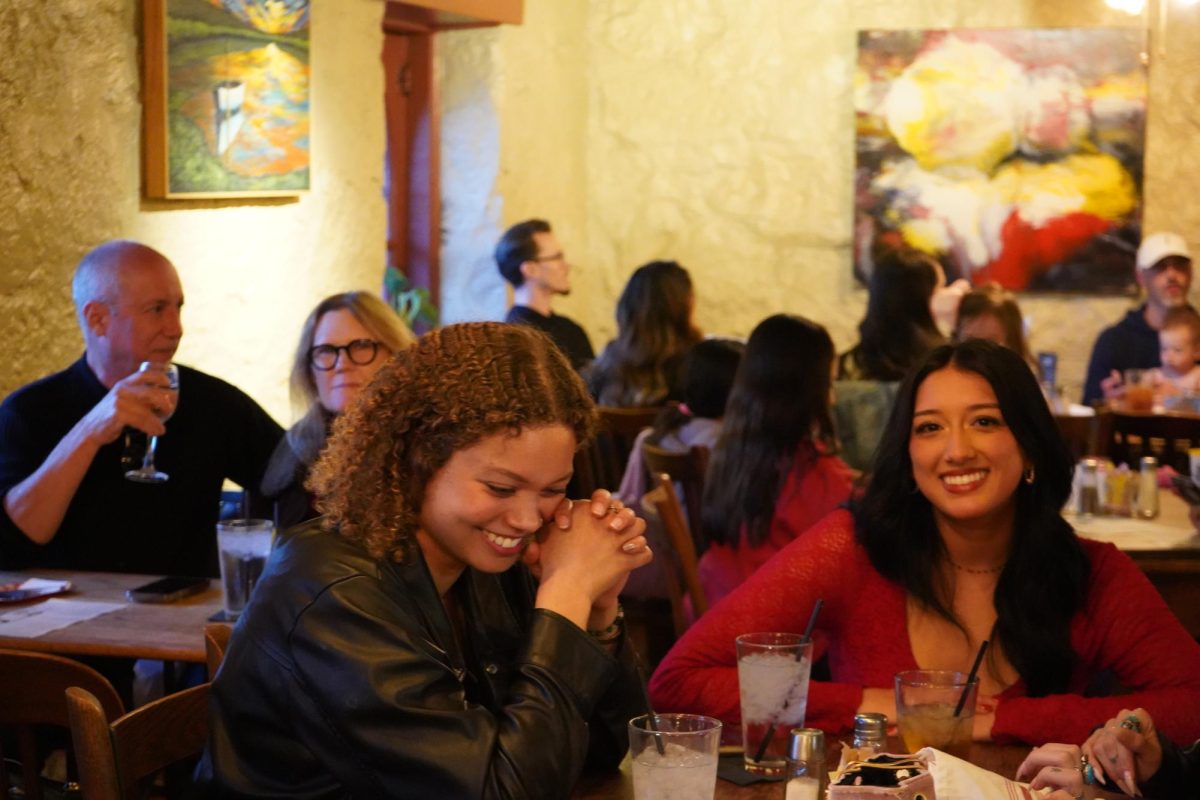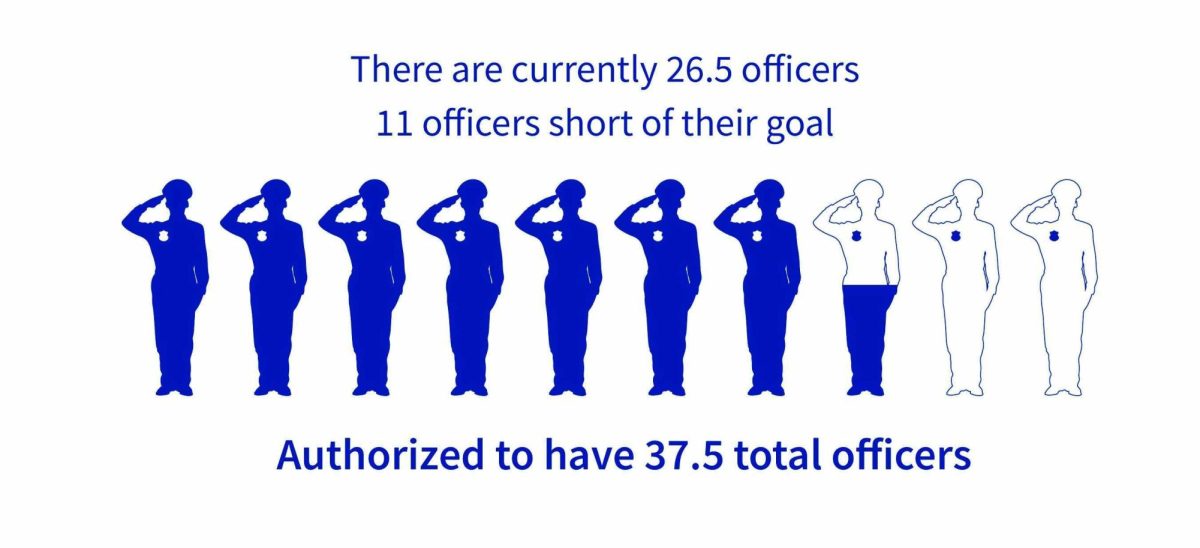South by Southwest hosted two panels, back to back discussing issues on misleading news and censorship in media, sparking concern and debate for the future of news and technology.
The panels Infocalypse: The Future of Misinformation and How We Stop It, and The Many Faces of Modern Media Censorship were held from 2-4:30 p.m March 13 at the JW Marriott in Austin. The two panels confronted the topics of fake news and censorship, two of media’s biggest modern-day issues.
The first panel was led by Ryan Mac, a Buzzed tech reporter and Garlin Gilchrist, executive director at the Center for Social Media Responsibility at the University of Michigan School of Information, and Aviv Ovadya, chief technologist at the Center for Social Media Responsibility at the University of Michigan School of Information. The second panel featured Alejandro González, development and innovation leader at 14ymedio, Cuba’s first independent digital news platform, and Christopher Guess, a Donald W. Reynolds Journalism Institute resident fellow at the University of Missouri School of Journalism.
The first panel began with the panelists discussing recent developments in technology since 2016, in comparison with what they said was a rise in the distrust of news outlets since 2016.
“The infocalypse is defined as a tipping point where we are in this state (with) a lack of belief in the problem of information or the lack of interest in fixing the problem,” Ovadya said.
Ovadya said social media is the largest issue facing the U.S. in terms of the spread of misinformation. He said social media needs to be updated in an effort to weed out sensationalist material, rather than spread it.
Social media was a topic in the second panel, but because it is the main reason people in countries like Cuba and Russia access the internet. González, a native of Cuba, and Guess, a journalist who has visited Russia said these countries have little access to the internet, so when citizens access the web, they use Facebook or copycat versions. The panelists said censorship, aside from social media, is the biggest reason these countries are full of misinformation.
“Phones in Cuba don’t have internet,” González said. “Instead, they go to a public hotspot and buy an access card. This is censorship in Cuba. It makes news via the web almost impossible.”
The panels showed audience members how oversharing and undertaking information can lead to problems in truthful storytelling.
SXSW panel recap: Technology takes fault in two of the biggest issues facing media
March 14, 2018
Panelists Alejandro González(left) and Christopher Guess discuss censorship in media during a SXSW panel.
Photo by: Katie Burrell | News Editor
0
Donate to The University Star
Your donation will support the student journalists of Texas State University. Your contribution will allow us to purchase equipment and cover our annual website hosting costs.
More to Discover


